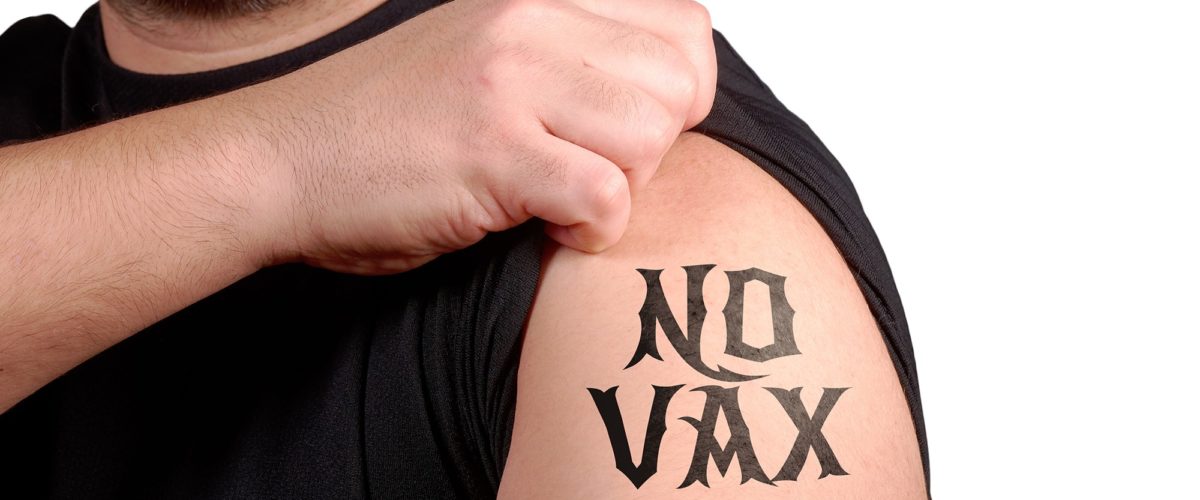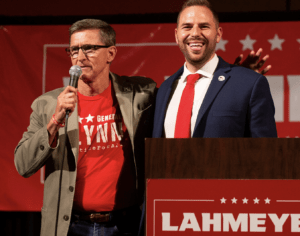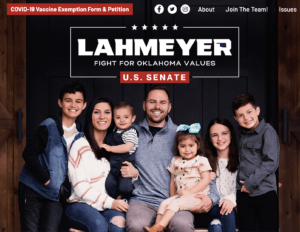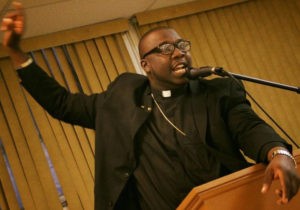

Unless you’re a member of a Dutch Reformed church or a Christian Science church, making a claim for a religious exemption to the COVID-19 vaccine as a Christian is going to be hard to prove.
According to research by Vanderbilt University, the Dutch Reformed, the Christian Scientists and a few lesser-known faith-healing groups are the only churches operating in the United States that have expressed any doctrinal objections to vaccinations in general. And that is a key to understanding legitimate claims for a religious exemption to COVID-19 vaccine mandates: Your religious group must oppose vaccines in general, not just the COVID vaccine.
U.S. labor law and some state vaccination laws provide for limited religious exemptions to vaccination mandates. However, these are intentionally written in such a way as to make exemptions rare because the way vaccines are effective is by their widespread — almost universal — adoption. Allowing widespread exemptions to vaccination would undermine the efficacy of the vaccine effort.
Vanderbilt has published a long list of denominations that have no theological objection to vaccination in general.
Vanderbilt has published a long list of denominations that have no theological objection to vaccination in general. It includes Roman Catholics, Eastern Orthodox, Anglicans, Baptists, Mormons, Congregationalists, Episcopalians, Lutherans, Methodists, Pentecostals, Presbyterians, Seventh-Day Adventists and Unitarian-Universalists.
Even Jehovah’s Witness — a group that originally shunned vaccination — revised its stance in 1952 to allow vaccination, and an article in a recent issue of the church’s newsletter promotes vaccination to avoid infectious diseases.
Dutch Reformed congregations have “a tradition of declining immunizations,” Vanderbilt reports. “Some members decline vaccination on the basis that it interferes with divine providence. However, others within the faith accept immunization as a gift from God to be used with gratitude.”
There are only about 1,000 congregations within the Reformed Church in America — as the Dutch Reformed are known today — and many of that body’s most prominent congregations are advocates of vaccination. The denomination itself has not taken a stand against COVID-19 vaccination.
Despite the fact that the overwhelming majority of Christian denominations in the United States today do not oppose vaccination on doctrinal grounds, some individual pastors and congregations are making news with their loud opposition to the COVID vaccines.
The Church of Christ, Scientist — commonly known as Christian Science — teaches that disease can be cured or prevented by focused prayer, leading members to request exemption from vaccinations in general. The denomination does not publish its statistics, but the number of Christian Science congregations in America today is believed to be fewer than 1,000.
Despite the fact that the overwhelming majority of Christian denominations in the United States today do not oppose vaccination on doctrinal grounds, some individual pastors and congregations are making news with their loud opposition to the COVID vaccines. Most of those pastors or congregations have embraced or tolerated conspiracy theories related to the reality of COVID, its origins and the safety of vaccines.
Chief among such high-profile pastors is Greg Locke of Nashville, who this week was banned for life from Twitter for repeatedly spreading demonstrably false information.

Lahmeyer with Flynn
And at least one Oklahoma pastor is trying to cash in on the vaccination fears of some evangelical Christians that have been stoked by far-right media. Jackson Lahmeyer, the 29-year-old pastor of Sheridan Church in Tulsa, is offering to sign religious exemption forms for anyone who will become an “online member” of his 300-attendance church and make a financial contribution to the church.
Sheridan Church, previously known as Sheridan Christian Center, was a prominent congregation in the charismatic movement of the 1960s and ’70s, with ties to televangelists Oral Roberts, Kenneth Hagin and Kenneth Copeland. Four years ago, the church had fallen on hard times, when leadership got passed to Lahmeyer, an Oral Roberts University graduate, businessman and now candidate for U.S. Senate from Oklahoma.
Lahmeyer hopes to unseat James Lankford, a conservative Republican and Southern Baptist, whom Lahmeyer accuses of “betraying” Donald Trump on Jan. 6 when the Senate met — after being attacked by insurrectionists — to ratify the factual results of the 2020 presidential election. One of the Lahmeyer’s stated priorities if elected to the Senate is to “investigate the 2020 election.”

The Pentecostal pastor’s political campaign is endorsed by Michael Flynn, the short-lived national security adviser to Trump who later was accused of making false statements to the FBI about his contacts with Russians during the 2016 presidential election and was pardoned by Trump, thus avoiding a public trial.
The Washington Post quoted Charles Haynes, senior fellow for religious freedom at the Freedom Forum in Washington, as saying of Lahmeyer: “He’s not really selling a religious exemption. He’s selling a bogus idea that you need one.”
Meanwhile, a New York City pastor also is trying to grow his flock by offering religious exemptions to vaccine mandates. Kevin McCall, leader of Anointed by God Ministry, told the New York Daily News that about 60% of his congregation has requested exemptions from the vaccines and that many others are coming to the church to get the exemptions as well.
He told the Daily News that most of the calls came from city workers who are required to be vaccinated or lose their jobs. He said there’s no fee to get the letter from him, but he encourages donations.
McCall also traffics in false information about COVID and basic human biology. He compared the life-saving vaccines to substance abuse: “Anything that you put in your body that we deem unclean — whether it’s vaccines, bad food, liquor or drugs — those are unclean things.”

But lest anyone think he’s just handing out religious exemption letters without a thought, he wants to set the record straight: “It has to be part of your belief. You join our membership. We’re not just giving them out willy-nilly.”
Whether written affirmations of religious objections to the COVID vaccines will keep anyone from succumbing to the mandate remains to be seen. Most legal scholars who study the issue believe there is little merit to such letters — especially if they are form letters from someone with little personal relationship to the person requesting the exemption.
“This has no functionality and is nothing more than a publicity stunt to increase his membership,” said Bill Neidhardt, spokesman for New York Mayor Bill de Blasio. “Vaccines save lives, and misinformation causes more deaths. We don’t need more people dying. That’s not right.”
Neidhardt told the Daily News that religious beliefs will not be viewed as free passes to come to work in New York without being vaccinated. City employees who refuse vaccination could be placed on unpaid leave if they’re unable to perform their job without putting coworkers at risk, he said.
While cities and states may have additional regulations applicable to schools and businesses, the main concern for employers nationwide is federal law. The Equal Employment Opportunity Commission has published guidance that says federal anti-discrimination laws don’t prohibit employers from requiring all employees who physically enter the workplace to be vaccinated for COVID-19.
Potentially exposing all other employees and customers to a deadly virus is unlikely to be considered by courts as a de minimis cost.
That guidance explains: “Employers that encourage or require vaccinations, however, must comply with the Americans with Disabilities Act, Title VII of the Civil Rights Act of 1964 and other workplace laws.”
Title VII requires an employer to accommodate an employee’s sincerely held religious belief, practice or observance, unless it would cause an “undue hardship” on the business. Courts previously have said an “undue hardship” is created by an accommodation that has more than a de minimis (very small) cost or burden on the employer. Potentially exposing all other employees and customers to a deadly virus is unlikely to be considered by courts as a de minimis cost.
According to federal law, employers may offer reasonable accommodations to non-compliant employees — if such accommodations are possible in that workplace. For example, the employer could require unvaccinated employees to work remotely, if that is an option consistent with the job and the employer’s practices.
While legal scholars see religious exemptions to vaccine mandates as unlikely to prevail in most court challenges, some anti-vaxxers are banking on the likelihood that most businesses don’t want to go to court over this issue.
Thus, merely the threat of legal action against companies that issue vaccine mandates may be enough to get them to grant otherwise-shaky religious exemptions. That appears to be what happened at Methodist Health System in Texas, which employs 10,000 people at 12 hospitals and 50 medical centers in the Dallas-Fort Worth Metroplex.
After requiring all employees to be vaccinated — a common requirement in hospital settings, which for years have required other standard vaccinations — the Methodist system was challenged by four employees who said they were denied religious exemptions to the vaccine mandate.
After the Florida-based Liberty Counsel intervened on behalf of those employees and threatened litigation, the health care system granted the religious exemptions.
Liberty Counsel is a conservative advocacy agency that promotes conspiracy theories and other debunked information about COVID and the alleged persecution of Christians in America. It promotes the horse deworming medication ivermectin as a treatment for COVID and warns that the Biden administration will use a vaccine mandate to “purge the military” of Christians and patriots who refuse to be “Anthony Fauci’s guinea pigs.”
Liberty Counsel’s approach to demanding religious exemptions for the Texas health care workers was based on the false assertion that all three COVID vaccines available in the United States are derived from “aborted fetal cell lines” in either development or testing.
That’s likely one reason the North Texas case against a Methodist hospital system was more threatening than a similar case at Houston Methodist Hospital in April. There, a group of employees sued the health system in an attempt to avoid a vaccine mandate. But a federal court dismissed the case because the employees had based their objection on the claim that the vaccines are “experimental” and “dangerous.”
In that case, 153 employees were fired or resigned for refusing to be vaccinated.
The next major test of vaccine mandates against purported religious exemptions likely will come in response to President Joe Biden’s executive order that all federal employees and employees in certain other sectors must be vaccinated.
That order says federal executive branch employees, health care workers and some others “must be fully vaccinated, except in limited circumstances where an employee is legally entitled to a reasonable accommodation.”
Lawsuits challenging the federal mandate already are piling up, but they will be heard on the legal merits of federal labor law, not on the threats of conservative religious freedom groups. By most counts, the issue will end up before the U.S. Supreme Court sooner rather than later.
Related articles: